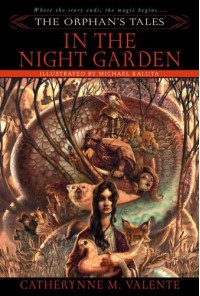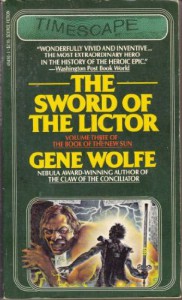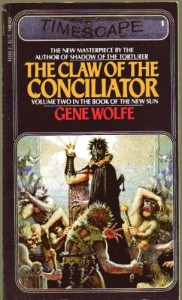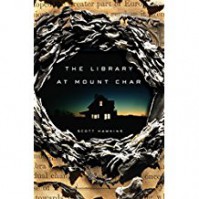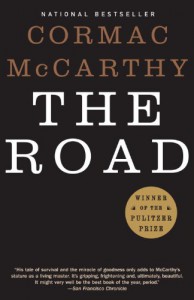
Listen up, people. The author of this book has sent his story to us back through time to help us prepare for the coming apocalypse. His message is this: After the apocalypse there will be no more quotation marks. Commas and apostrophes will be in short supply. Periods will outlast them all. Please use punctuation sparingly and recycle when possible.
Ok, I’m joking. Sort of. The above paragraph was triggered by the odd punctuation choices the author made. More on that later. This is a post-apocalyptic survival story in which “the man” and “the boy” travel, more or less, down a road toward the southeast part of the U.S. Some sort of major catastrophe, the source of which is only hinted at, has blocked the sun, destroyed most life, and left ash coating everywhere. The story is basically about their travel down the road, the dangers they face, and their relationship with each other.
This book doles everything out sparingly – prose, dialogue, world-building, and even punctuation. I guess that was the purpose to the missing punctuation; it was an attempt to fit with the style of the writing itself. I couldn’t find any deeper message to it, anyway. It was a little distracting at first, but it wasn’t usually too difficult to follow, especially since there were usually only two characters.
The dialogue sometimes consisted of several short lines of one to five words each running down the page, alternating between the boy and the man. It’s one reason the book was such a fast read; there just weren’t that many words on a page, especially not during the sections of dialogue. I kind of liked the dialogue, though. I felt like there was a lot being said with those few words, that they knew each other so well that they didn’t have to express themselves verbosely to get a point across.
The spare world-building bugged me a little, though. We don’t even know the boy’s age, or how long it’s been since the apocalypse, or what exactly happened, although we do get some hints on the latter. We don’t know how widespread it is. We don’t know how people survived the initial event, or why so few did. The book seemed to be about conveying an experience, and a relationship, and it did so in a very impactful way, but the story itself wasn’t very satisfying to me. It was a quick read that held my attention, but I wanted more meat.
The world itself, however is painted very vividly. I read about half of this book on my deck where I could enjoy the fresh air, sunlight, and green things as an offset to the bleak, dim, ash-filled setting my head was filled with. Future readers may also want to have fresh water and fruit handy…
Next Book
Dirk Gently’s Holistic Detective Agency by Douglas Adams. I don’t really know anything about this book, but I did read The Hitchhiker’s Guide to the Galaxy about 15 or 20 years ago, so I have a general expectation of silliness. I was pretty lukewarm in my reaction to Hitchhiker’s, but I’m curious to try the author again after all of these years and it’s possible that silly might seem nice after the book I just finished. :)
 1
1
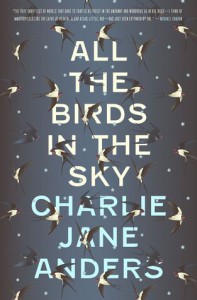
 1
1




